Swimming is a core survival skill that can save your child’s life if they find themselves in a situation where they can drown. Drowning is the third leading cause of death across the world. Children who don’t know how to swim are a high-risk group when it comes to accidental drowning deaths.
Since children are at risk of drowning, taking swimming lessons early on in life can prove to be a huge lifesaver later on.
Table of Contents
How Do You Know It’s Time to Find a Swimming Class for Your Child?
You can take your child swimming as soon as they turn six months old. But remember six-month-old needs constant supervision in the water. Infants younger than six months shouldn’t be allowed to swim, and they aren’t ready to learn basic survival skills yet.
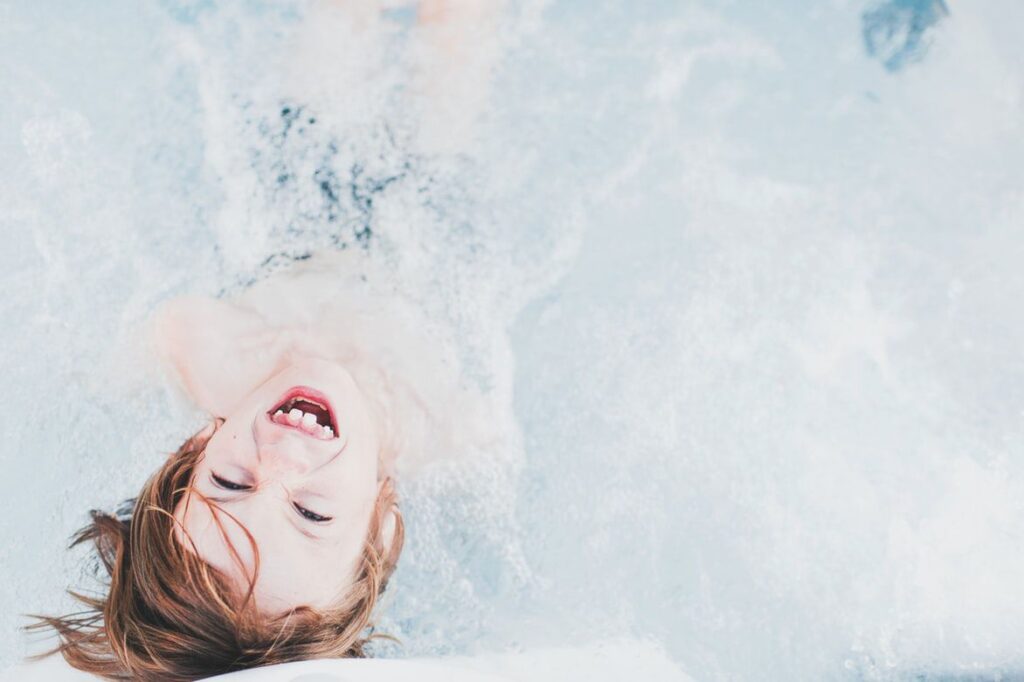
Children also develop in different ways. Your child may not be comfortable with the idea of taking swimming lessons until they are a little older.
The right time to sign your child up for swimming lessons is when they’ve developed the right physical, emotional, and developmental maturity required for participating in sports and extra-curricular activities. The age of four is usually the time when this happens.
Why Should You Take Your Child to Swimming Lessons?
Ensuring that your child knows water survival skills can save their life someday. Accidentals related to drowning can be accidental, related to an injury underwater, or intentional. Knowing how to control their breathing, swim to the top, and other essential swimming skills can give your child the confidence they need to swim comfortably in different situations.
Swimming is also a great form of exercise. It exercises the muscles of the hand, the feet, the abdomen, the back, and more. Swimming lessons can help your child:
- Tone their body so they can grow up healthier and stronger.
- Increase attention and focus.
- Improve their hand-eye coordination.
- Reduce risk from sleep disorders like insomnia.
- Learn water survival skills, including First Aid and CPR.
What Age is the Right Age to Start Taking Swimming Lessons?
Children at different stages of growth will learn different skills. A toddler’s priority is to learn the foundational skills associated with swimming. Meanwhile, a student in secondary school can learn either lifesaving skills, competitive swimming, or improve their strokes and techniques.
Children Aged Between 6 Months to Four Years
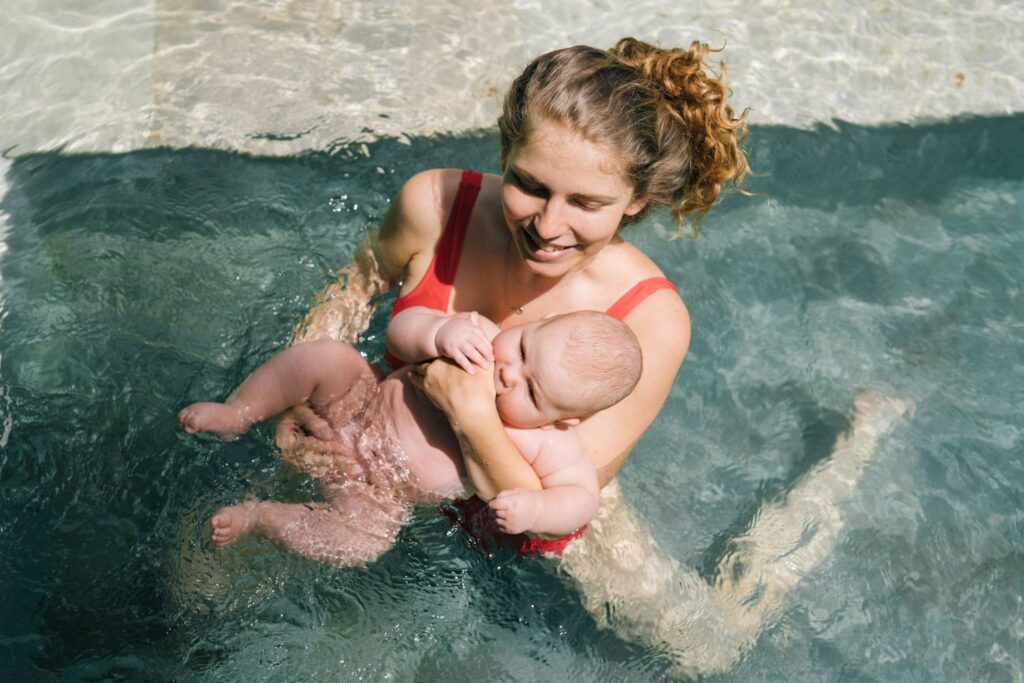
During this time, most children are in Pre-school. The younger your child is, the more supervision they’ll need in the water.
Especially if your child is between six months to one year old, consider engaging in water play with them. This helps them get accustomed to swimming pools. A toddler can be taught how to float on their back. Children this age should always wear safety gear when entering swimming pools to prevent accidents from happening.
By the time your child is four, they’ll be able to:
- Float
- Move around in the water
- Enter or leave the swimming pool, provided the depth is low and there are no obstacles in their way
- Control their breathing underwater
Children Aged Between 5 to 12 Years
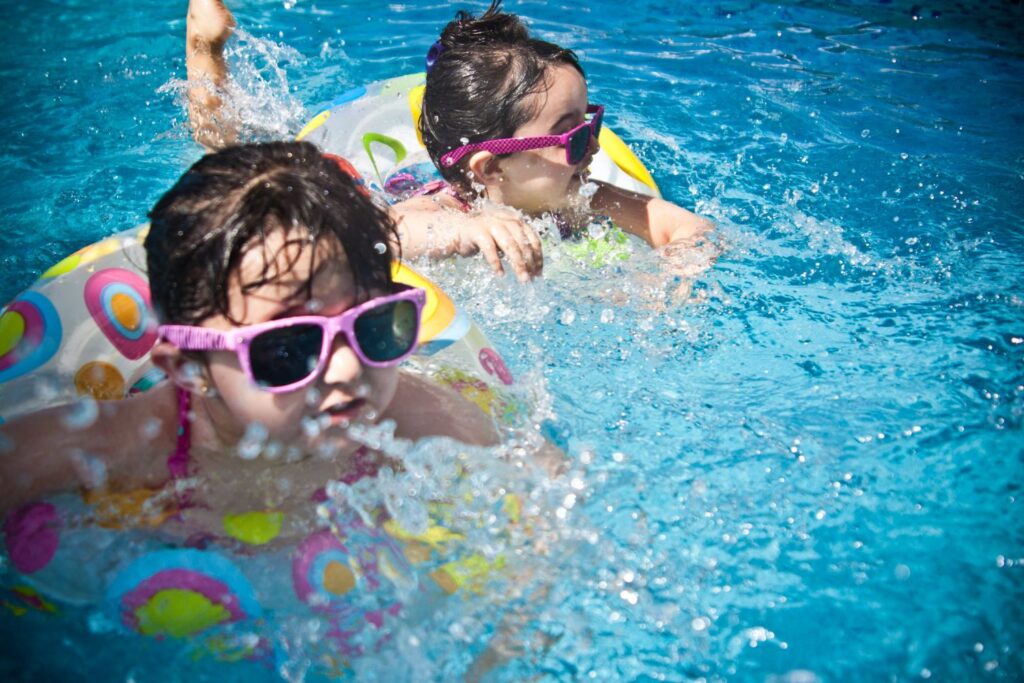
During this time, your child has entered Primary School. Various schools have swimming lessons as a part of their curriculum. Although this is a great way to equip your child with basic swimming skills, studies indicate that it isn’t enough.
A study from Australian Leisure Management shows that children need to participate in regular swimming lessons to develop both survival skills, as well as competency in water. This means that school swimming programs simply aren’t enough.
Even if your child’s school is providing them with swimming lessons, you can consider enrolling them into professional classes as well.
If your child has been regularly practicing their swimming skills through these key developmental years, then by the age of 12 they’ll be able to:
- Use basic strokes and techniques such as freestyle and the backstroke.
- Swim distances of up to 50m at a stretch.
- Use their arms to move around in water using strong strokes.
- Use treading skills for at least 2 minutes at a stretch.
Additionally, they should also learn how to swim in normal clothes, as a part of survival training, alongside swimming in regular swimming gear.
Children Aged Between 13 to 18 years:
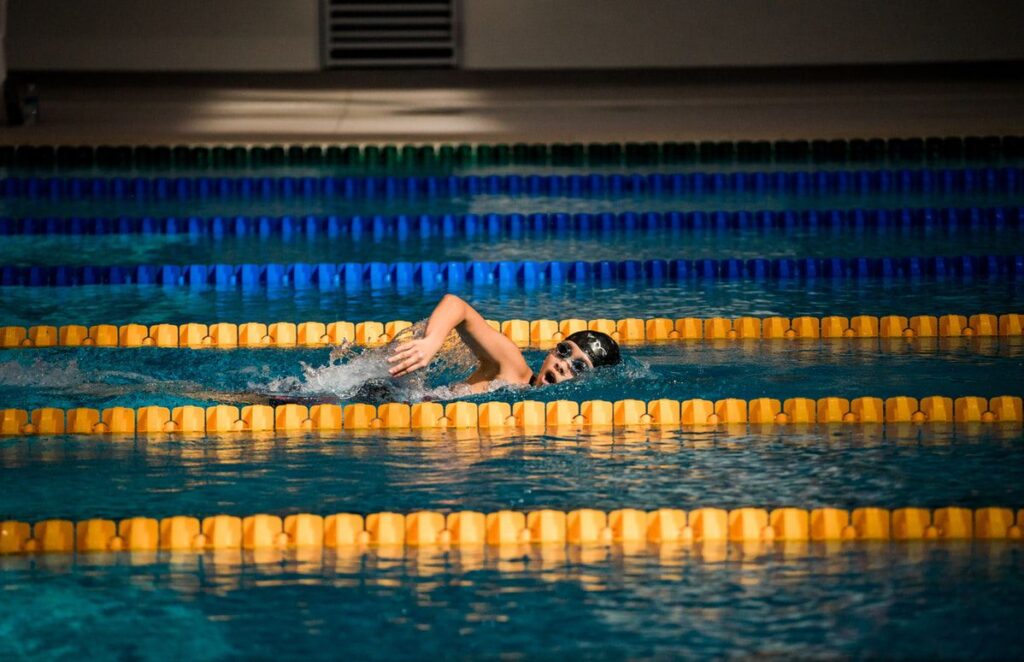
During this time, your child will be in Secondary School. The primary focus of school programs will be towards completing the school curriculum. However, swimming lessons might still be available.
Children in this developmental phase should focus on broadening their knowledge and improving their skills. Encouraging them to participate in swimming lessons as a part of survival training may encourage them more.
What Do Parents Need to Know About Swimming Lessons for Children?
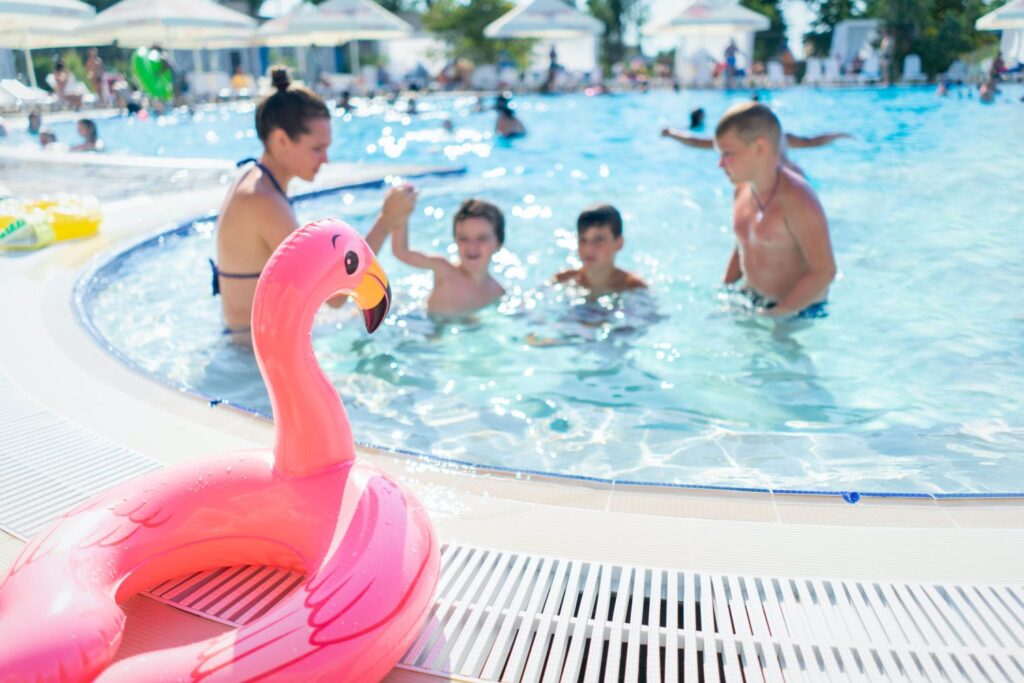
If you’re looking for swimming lessons for children, then you’ll need to consider various factors such as:
- Finding qualified instructors
- Providing constant supervision to your child when they are swimming
- Finding swimming classes for their age group
- Ensuring that safety equipment is available and used by the children
- The knowledge that a medical professional is nearby
You may also want to consider some other factors, such as whether the swimming pool uses chlorinated water or saltwater. The purity of the water in the swimming pool could affect your child’s health, irritate their skin, and become an issue if your child is prone to asthma or allergies.
Another point to consider is whether the water in the pool is warm or not. This is especially crucial for those days when the weather is chilly, or just before the colder months set in. You can also consider the kind of pool that is being used. Fibreglass pools are much safer, especially when compared to pools that use a material like concrete. The surface of fibreglass pools are not as abrasive as concrete or vinyl pools. This means that your child is likely to get hurt if they crash onto the sides.
Swimming from an early age is a great way to equip your child with key survival skills. Structured swimming lessons can help your child learn everything they need to know about being comfortable and confident in the water.













